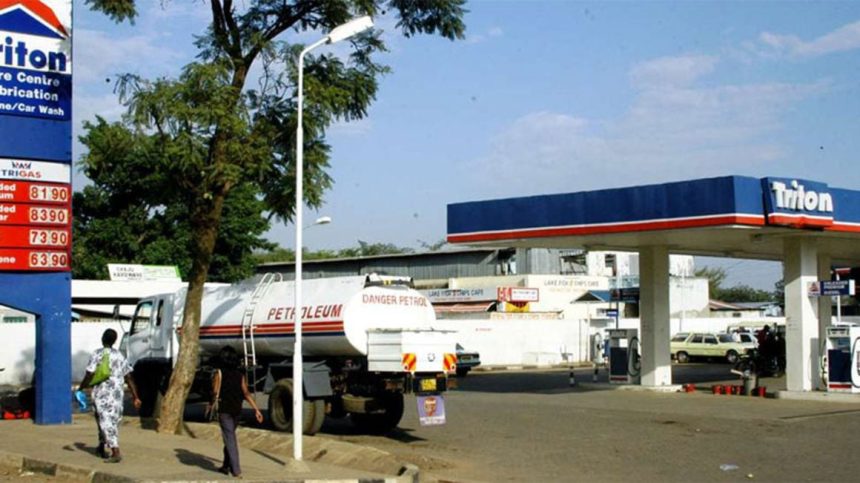After being on the run for 16 years, the long arm of the law has finally caught up with fugitive business tycoon Yagnesh Mohanlal Devani.
Devani, who was in 2013 named among the most-wanted Kenyan suspects by Interpol over his alleged role in the Triton fuel theft scandal, was last week quietly extradited from Britain, charged in a Nairobi court then freed on bond.
He applied to be freed on bond which was not opposed by the prosecution. The accused was released on a cash bail of Ksh1 million ($6,230) plus one contact person after denying four counts of theft and fraudulent disposal of products.
Past reports quoting an official audit indicated that the Kenyan taxpayer risked losing over Ksh7.6 billion ($47,352) as a result of the 2008 scam due to the breaching of an agreement with financiers of a lucrative contract awarded to Devani’s company, Triton Petroleum Company Limited, to supply oil under a system introduced to help local oil firms.
When he was arraigned before Milimani Senior Principal Magistrate Robinson Ondieki on January 23, 2024, the fugitive was indicted over the irregular disposal of thousands of tonnes of gas oil, jet fuel and motor spirit premium worth $9,019,630 (Ksh1,470,199,690) that had been mortgaged by Kenya Commercial Bank Limited (KCB).
The three-page charge sheet was drawn by an Acting Assistant Director of Public Prosecutions Ms D Rugut.
Devani, then described in media reports as a shrewd businessman who enjoyed good political connections, allegedly stole the jet fuel he had bought using funds provided to him and his company, Triton Petroleum Company Limited, by KCB.
The loan was advanced to him and his company Triton.
Devani had fled to the United Kingdom when his co-accused were charged, and the court issued a warrant of arrest against him to face multiple charges.
One of the charges filed against Devani and Triton is that between April 23 and December 4, 2008 at Kipevu Oil Storage facility within Mombasa County, jointly with others before court, he stole 318,656 metric tonnes of jet fuel valued at $365,974 (Ksh58.8 million at current exchange rates), being the property of KCB.
The second charge read that on diverse dates between April 23 and December 4, 2008, at Kipevu Oil Storage jointly with others not before court they stole 2,000 metric tonnes of automotive gas oil valued at $215,934 (Ksh34.6 million), the property of KCB.
The court was told that between May 15, 2008 and December 4, 2008 at Kipevu Oil Storage, jointly with others before the court, they stole 418.134 metric tonnes of motor spirit premium valued at $438,031.10 (Ksh70.3 million) belonging to the bank.
The trial court heard that between November 2, 2008 and December 4, 2008, at Kipevu Oil Storage facility, jointly with others before court, they stole 12,782 metric tonnes of automotive gas oil valued at $7,999,691.39 (Ksh1.28 billion), the property of KCB.
Devani faced alternative counts of fraudulent disposal of the said highly inflammable petroleum products.
The case will be mentioned on February 12, 2024, for pre-trial directions.
While Devani had fled the country the State proceeded with the case in his absence.
The case proceeded without him after the chief magistrate Gilbert Mutembei rejected pleas for more time since Devani was the main suspect. His alleged accomplices have been calling for a speedy trial.
He is accused of committing the offence together with Julius Kilonzo, Mahendra Pathak and Benedict Mutua.
Mutua also faces abuse of office charges and is accused of releasing the said oil without the authority of Fortis Bank.
Prosecution counsel Edwin Okello informed the court that the government had sought the assistance of Interpol in enforcing the warrant of arrest against the business tycoon.
In 2011, Kenya filed an extradition request to have Devani brought to Kenya to answer charges of defrauding the Kenya Commercial Bank and Emirates National Oil Corporation of Singapore.
In 2013, Kenya filed another extradition request alleging Devani had also defrauded the global banking firm Fortis. Overall, he faced 19 counts of financial crimes.
Devani challenged both requests, dragging the matter through UK courts.
In May 2020, the Court of Appeal in the UK dismissed his application seeking asylum in the UK, effectively allowing his extradition to Kenya to face several charges of fraud.



